In the lead up to the Center for Universal Education’s annual research and policy symposium “Citizens of the Future: Innovations to Leapfrog Global Education” May 21, 2018, guest authors from the education innovations community will contribute their unique insights to this blog series on the topic. Access all of our content on innovations here.
Research shows that the healthy development of social and behavioral skills is crucial to health and well-being. The ability to empathize, for example, allows us to have healthy interpersonal relationships, promote social understanding, and engage in altruistic acts. However, understanding and teaching empathy is too often not prioritized in our education systems, which can be detrimental to development. How can innovation address this?
Venezuelan-based Trix and Trax is one example of an innovation tackling this through a peer-to-peer learning system that leverages live events and social media to inspire young people to gain valuable skills whilst developing their passions.
How does it work?
The program begins by engaging 10-18-year-olds to be “superheroes” who can inspire, teach and share with others, online and offline. The program centers on five zones: non-traditional sports, music, dance, visual arts, and media/tech that create the right conditions for any student to perform in a safe environment to display their passions and learn from each other.
Through a set of sessions, each superhero first learns to discover and present their talents. They then work as a group, divided by their zone of choice, to work in teams, teaching and motivating their peers to prepare a final group performance for each zone. Videos of these performances are shared on the Trix and Trax social media tool where students can provide positive feedback and recognize each other’s strengths.
All participants of the program then take on the final challenge of organizing a Trix and Trax event for the school, not only to highlight their talent but also to welcome other students who want to experiment. They are now ready to show, teach, motivate, and inspire others to develop their passions!
This program is a favorite with educators since the curriculum itself can be tailored. The recommended time to dedicate each week for the program is 2 sessions of 45 minutes over the course of the year. Educators can incorporate it into the school day or as an extra-curricular activity.
Impact & Scalability
Since 2011, Trix and Trax has worked with 15,000 students to record 1,000 video performances, with over 2 million collective views. Their continued success is evident in their emphasis on collecting data and feedback to improve impact and reach. Each year, they tour schools with students from all socio-economic backgrounds and, in that process, collect valuable information about their perceptions of their own passions and dreams. They have found that students from low socio-economic backgrounds are more susceptible to questioning their talent, demonstrating the high value the program can have on self-confidence, empathy, leadership, and much more.
Their latest data shows that 80 percent of 12-13-year-olds feel they’re talented independent of socio-economic status. However, by age 16-17 they become more aware of their current context and this percentage drops to around 60 percent for those from low-socioeconomic areas, compared to 80 percent still for higher socioeconomic areas.
Fortunately, close to 90 percent of low-income students expressed their interest in any program that can help them develop their passions. Following participation in the Trix and Trax program, over 90 percent of the participants say that they feel more motivated to pursue their dreams. Developing these skills and opportunities are essential for anyone but are particularly important for youth in Venezuela who face an economic collapse—a threat to their ability to be empathic, confident students.
In addition to Venezuela, this innovation has also been successful in Chile, and there are developments to establish it in the U.S. The program is so popular that it has become a yearly fixture in many schools and a popular content channel for youth.
Educating empathy
By engaging students in this multi-dimensional way, innovations like Trix and Trax are teaching skills like empathy. To be empathic we need to understand what someone is thinking and feel a certain level of emotion about it (cognitive & affective empathy), but we must also be able to demonstrate this understanding automatically through the physical, such as facial expression and/or body language (motor empathy).
Trix and Trax facilitates this so young people can develop their cognitive empathic abilities through understanding how someone else might learn their passion, as well as enhance their effective empathic abilities towards fellow students who may feel nervous when experimenting with something new or share happiness with others when celebrating accomplishments.
The opportunities to engage in activities, such as music and dance, can particularly facilitate the improvement of more automatic, motor aspects of empathy. This can be developed through aspects such as emotional connectedness to music, mirroring and synchronous movement.
Spreading across borders to accelerate progress
The recent Brookings report Can We Leapfrog? The Potential of Education Innovations to Rapidly Accelerate Progress shows that one path forward to ensure our young people gain these important skills is through harnessing the power of innovation. The world of education is full of great innovations. Unfortunately, they seldom manage to spread from classroom to classroom, school to school, let alone around the world.
This is where HundrED comes in. HundrED is a not-for-profit organization that seeks and shares inspiring innovations in K-12 education. Our goal is to help improve education and inspire a grassroots movement through spreading pedagogically sound, ambitious innovations across the world. HundrED shares a collection of 100 innovations annually, all with toolkits, so that anyone can implement the innovation themselves for free. We have a fast-growing network of ambassadors and schools, from over 40 countries, alongside our HundrED Spotlights, focused partnerships on locations or themes and independent research into how and why innovation spreads in education, including youth voice.
For all innovations, an internal educational specialist research team and an expert advisory board research and interview innovations for selection. In 2018, educators and youth will also have the opportunity to vote and provide feedback in our new Academy model.
When selecting innovations they must be innovative, impactful, and scalable:
- Innovativeness: Valuable improvement within the context
- Impact: Established for at least one year with demonstrable evidence
- Scalability: Adaptable in new environments with commitment to scale
For example, in the case of Trix and Trax, innovativeness is shown by its divergence from the norm by re-inventing a traditional talent show model utilizing online and offline tools. The innovation sets clear, demand-driven, child-centered goals that support learning breadth and depth of skills in an active, engaging, and useful way.
They demonstrate impact through their high number of engaged online users, many case studies of attendee pursuing careers in their passion, as well as monitored skill development.
The scalability of the model is shown through its expansion across Venezuela, and into Chile, with a design and implementation structure to both improve and expand as they create meaningful stakeholder partnerships.
Get Involved with HundrED
Do you have an educational innovation that the world should know about? Share it with us! Submitting to HundrED Open makes your innovation visible to an international audience enthusiastic about education change. It also means your application will be considered for our list of 100 Global Inspiring Innovations 2018. Before submitting, be sure to explore our 2017 toolkits to get an idea of the innovations changing the face of education today. As a rapidly expanding global network, we also need the support of dedicated ambassadors to help discover and share innovations around the world. If you’d like to join our growing community of passionate ambassadors, we’d love for you to apply here.
The Brookings Institution is committed to quality, independence, and impact.
We are supported by a diverse array of funders. In line with our values and policies, each Brookings publication represents the sole views of its author(s).

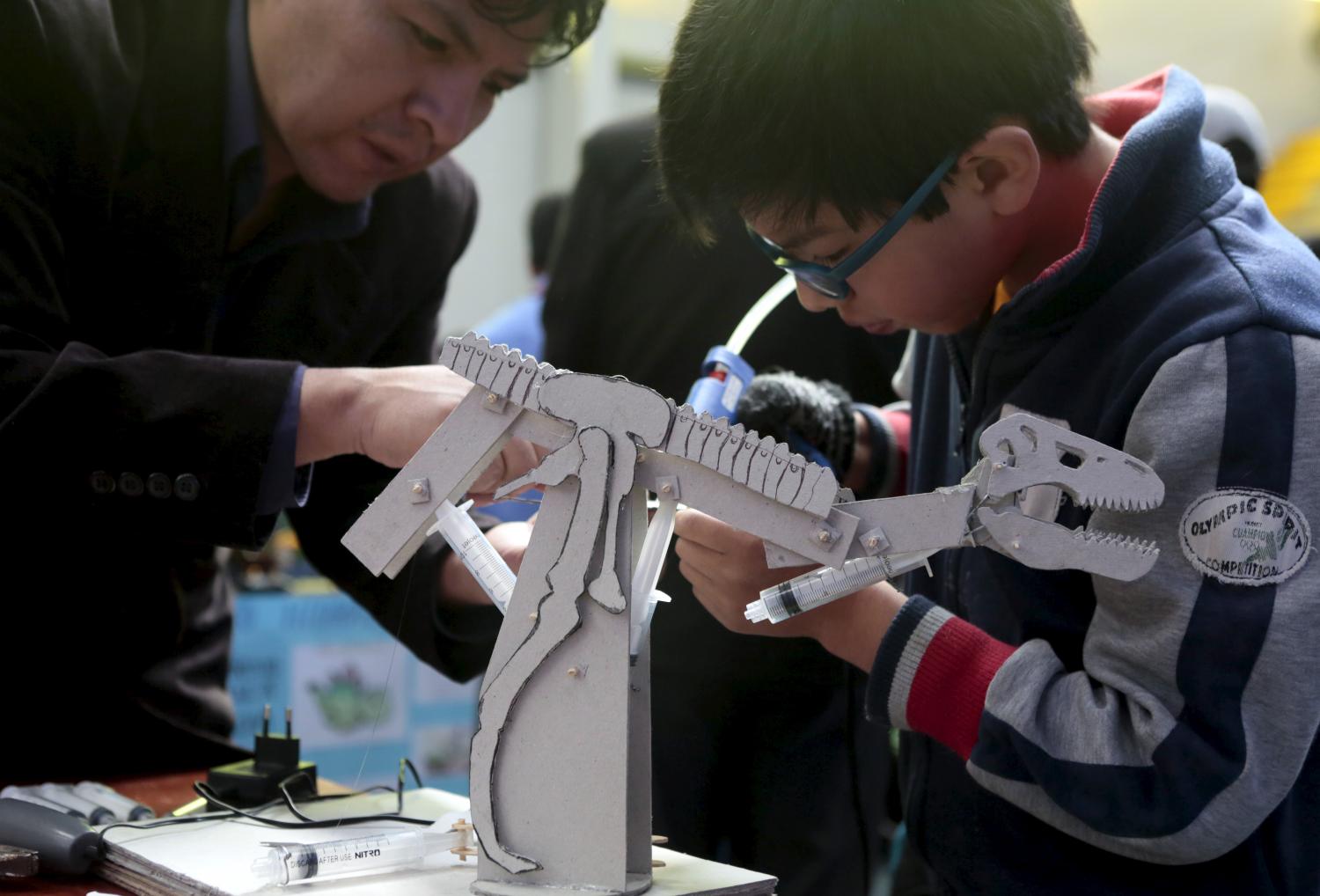
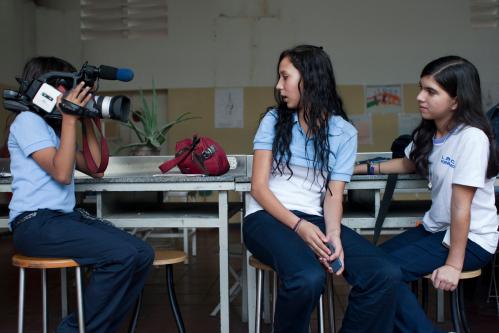
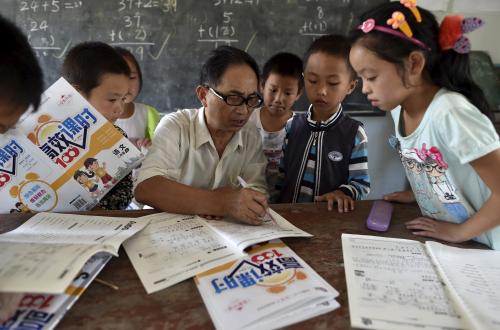
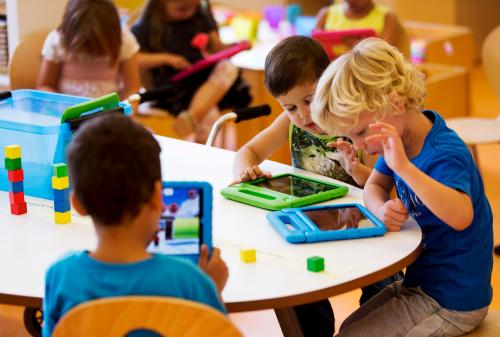


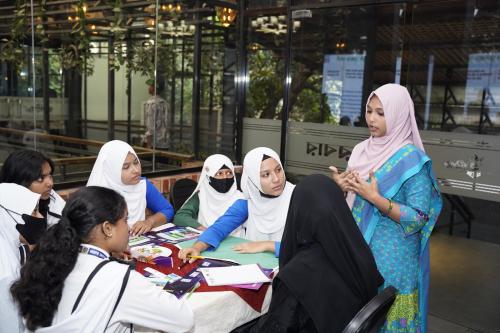
Commentary
Educating empathy: Inspiring students to develop their passions
March 6, 2018